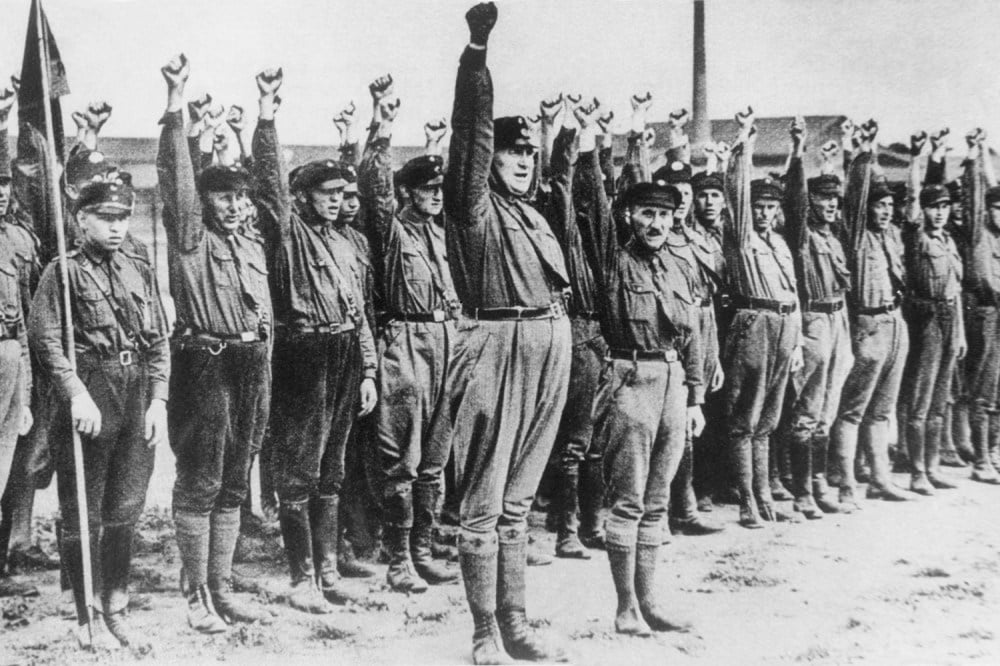Lessons from History: How Past Foreign-Policy Failures Shape Today’s Challenges
As nations grapple with complex global issues, examining historical foreign-policy missteps offers valuable insights. The lessons from history are not just relics of the past; they are vital tools for navigating the intricate landscape of modern diplomacy. From the miscalculations that led to wars to the diplomatic blunders that strained alliances, understanding these failures can illuminate current dilemmas and potentially guide us toward more effective solutions.
Understanding Foreign-Policy Failures
Foreign-policy failures can be defined as decisions or actions taken by a country that lead to unintended negative consequences in the international arena. These failures often stem from a combination of factors, including miscommunication, lack of foresight, and an underestimation of other nations’ responses. The consequences can be dire, resulting in economic sanctions, military conflicts, and strained international relationships.
Understanding these failures is crucial as they provide a framework for analyzing contemporary issues. By reflecting on past mistakes, policymakers can identify patterns and avoid repeating them. Here are some notable historical foreign-policy failures that continue to resonate today:
- The Vietnam War: A classic example of misjudgment in foreign policy, the U.S. involvement in Vietnam was marked by a failure to understand the local context and an underestimation of the resolve of the Vietnamese people. The consequences of this conflict still affect U.S. foreign policy today.
- The Suez Crisis of 1956: This event illustrated the pitfalls of colonial attitudes and the importance of considering the perspectives of other nations. The crisis highlighted the decline of British and French influence and the emergence of the U.S. and the Soviet Union as superpowers.
- Russian Invasion of Afghanistan: Soviet involvement in Afghanistan in the late 1970s is a reminder of how foreign intervention can lead to prolonged conflict and instability, ultimately resulting in a costly withdrawal and a power vacuum.
Insights from the Past: Policy Implications
Analyzing these historical failures reveals several critical insights that can inform current foreign policy:
- Context Matters: A deep understanding of the local political, cultural, and social dynamics is essential. Policies based on superficial analyses often lead to significant miscalculations.
- Listen and Collaborate: Engaging with international partners and listening to their concerns fosters trust and cooperation. Unilateral decisions can provoke resentment and resistance.
- Humility in Power: Great powers must recognize their limits. Overreach can lead to backlash, as seen in various interventions that resulted in long-term instability.
Today’s Challenges: Echoes of the Past
Today, the world faces challenges that echo historical foreign-policy failures. For example, the ongoing tensions in the Middle East can be traced back to colonial-era decisions, much like the Suez Crisis. Additionally, the rise of nationalism and populism in various countries reflects a growing discontent with globalization, a theme prevalent in the past.
Moreover, the COVID-19 pandemic has underscored the interconnectedness of our world, revealing how failures in global health policies can have far-reaching consequences. The initial response to the pandemic highlights the need for coordinated international action, reminiscent of the failures seen in past health crises.
Learning from Historical Case Studies
To navigate today’s foreign-policy landscape, it is instructive to look at specific case studies where lessons have been learned:
- The Iran Nuclear Deal: The complexities surrounding Iran’s nuclear ambitions underscore the importance of negotiation and diplomacy. The initial agreement in 2015 showed promise but later unravelled, reminding policymakers of the need for sustained engagement and trust-building.
- The Paris Agreement: In addressing climate change, the global response has been marked by collaboration, reflecting a shift from unilateralism to multilateralism. This approach acknowledges the lessons learned from past failures in addressing global crises.
Bridging the Gap: Future Directions
So, how can we apply these lessons to forge a better path forward? Here are some strategies:
- Prioritize Diplomacy: Investing in diplomatic channels and fostering relationships can mitigate conflicts before they escalate. This includes understanding the perspectives of emerging powers and regional actors.
- Enhance Multilateral Cooperation: Global challenges require collective action. Strengthening institutions like the United Nations and regional organizations can facilitate collaborative solutions.
- Focus on Preventive Measures: Learning from history means recognizing the signs of potential crises early on and taking preventive action rather than reactive measures.
Conclusion: A Hopeful Outlook
In conclusion, the lessons from history regarding foreign-policy failures are invaluable in shaping today’s challenges. By understanding the past, we can better navigate the complexities of modern diplomacy. As nations confront issues like climate change, international health, and geopolitical tensions, the importance of learning from historical missteps cannot be overstated. The knowledge gained from these lessons can guide us toward a more cooperative and peaceful global future.
Reflecting on history not only highlights the mistakes made but also provides a roadmap for the future. With a commitment to humility, collaboration, and understanding, there is hope for a more harmonious international community. As we move forward, let us carry these lessons with us, ensuring that the mistakes of the past do not become the pitfalls of the future.
See more BBC Express News

